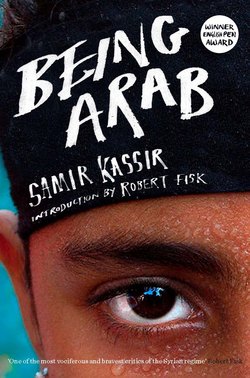Читать книгу Being Arab - Samir Kassir - Страница 5
На сайте Литреса книга снята с продажи.
ОглавлениеFOREWORD
IT’S NOT PLEASANT being Arab these days. Feelings of persecution for some, self-hatred for others; a deep disquiet pervades the Arab world. Even those groups that for a long time have considered themselves invulnerable, the Saudi ruling class and Kuwaiti rich, have ceased to be immune to the enveloping sense of malaise since a certain September 11.
The picture is bleak from any angle but even more so when compared with other parts of the world. Apart from Sub-Saharan Africa (the stage for an altogether different collision between potential and reality, expectation and achievement, anxiety and frustration, past and present), the Arab world is the region where men and, to an even greater extent, women have the least chance of thriving. ‘Arab’ itself is so impoverished a word that it’s reduced in places to a mere ethnic label with overtones of censure, or, at best, a culture that denies everything modernity stands for.
Yet the Arab world hasn’t always suffered such a ‘malaise’. Apart from the supposed golden age of Arab—Muslim civilization, there was a time not so very long ago when Arabs could look to the future with optimism. The cultural renaissance of the nineteenth century, the famous nahda, illuminated many Arab societies with modernity in a way that often went beyond the westernized, or westernizing, elites. In the twentieth century, one of these societies, Egypt, founded the world’s third-oldest film industry, while from Cairo to Baghdad and from Beirut to Casablanca painters, poets, musicians, playwrights and novelists shaped a new, living Arab culture. These innovations were mirrored by undeniable changes in the social sphere, the most spectacular, revolutionary and now debated being women’s decision to give up the veil. In politics likewise, the mobilization of societies enabled Arabs to play a prominent role in international affairs: Nasser’s Egypt, for instance, one of the pillars of Afro-Asianism and the subsequent Non-Alignment movement;1 independent Algeria, the driving force of the entire African continent; or the Palestinian resistance which was called on to further the cause of democratic rights without succumbing to the ideology of victimhood now so prevalent.
So what checked this momentum, which, even if it didn’t achieve complete success, still heralded a better and seemingly attainable future? How did we become so stagnant? This state may be more intellectual and ideological than material but it still makes us believe that we have no future other than that proposed by a morbid fundamentalism. How has a living culture become discredited and its members united in a cult of misery and death? The following book aims to offer elements of a response to these questions and, by implication, to convey the possibility of finding a way out of the crisis.
This book makes no claim to be a political programme, nor for that matter the report of an expert witness. It is first and foremost the views of an Arab intellectual, such as could be put forward anywhere in the world: in Paris or Damascus, London or Beirut, Cairo or Casablanca, Algiers or – as has recently become the case – Baghdad. In saying this, however, I am not trying to hide behind a consensus of any sort. There is no consensus and every intellectual’s own political identity informs his or her arguments. Before proceeding, therefore, I must first declare my identity.
The author of these reflections is an Arab from the Levant: secular, as will soon become apparent, acculturated, even westernized, but with no sense of himself as alienated from a foreign culture and no desire to eradicate those who think differently. He has no desire to try them in a foreign court either: this book has also been published in an Arab edition and, while this may not be a guarantee of universalism, at least it may be seen as demonstrating the possibility of conducting a debate that is both about Arabs and for Arabs.
Beirut—Paris, July 2004
